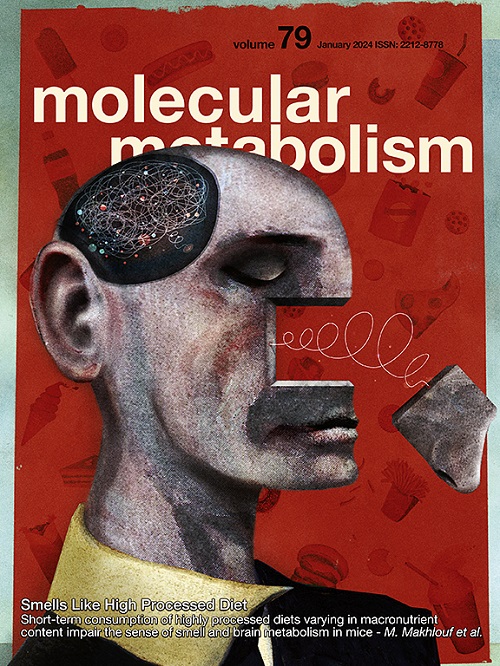PAX4基因的完全缺失导致人类新生儿短暂性糖尿病
IF 7
2区 医学
Q1 ENDOCRINOLOGY & METABOLISM
引用次数: 0
摘要
在6个月内诊断为糖尿病的个体(新生儿糖尿病,NDM)的基因发现研究可以为人类胰腺β细胞的发育和功能提供独特的见解。我们在2个不相关的NDM患者中发现了纯合子PAX4功能丧失变体:p.(Arg126*)停止增益变体和c.-352_104del缺失,影响PAX4前4个外显子。我们证实了p.(Arg126*)变异在crispr编辑的人类诱导多能干细胞(iPSC)衍生的胰腺内胚层细胞中引起无义介导的衰变。在PAX4缺失的胰岛细胞模型中,通过对CUT&RUN和rna测序的综合分析,发现了由PAX4直接调控的参与胰岛发育和葡萄糖刺激胰岛素分泌的基因。两个先证都有短暂性NDM,在婴儿期早期得到缓解,但在2.4岁和6.7岁时复发,这表明与小鼠模型相反,PAX4对人类胰腺β细胞的发育不是必需的。本文章由计算机程序翻译,如有差异,请以英文原文为准。
Complete loss of PAX4 causes transient neonatal diabetes in humans
Objective
Gene discovery studies in individuals with diabetes diagnosed within 6 months of life (neonatal diabetes, NDM) can provide unique insights into the development and function of human pancreatic beta-cells.
Methods
We performed genome sequencing in a cohort of 43 consanguineous individuals with NDM in whom all the known genetic causes had previously been excluded. We used quantitative PCR and RNA-sequencing in CRISPR-edited human induced pluripotent stem cells (iPSCs), and CUT&RUN-sequencing in EndoC-βH1 cells to investigate the effect of PAX4 loss on human pancreatic development.
Results
We describe the identification of homozygous PAX4 loss-of-function variants in 2 individuals with transient NDM: a p.(Arg126∗) stop-gain variant and a c.-352_104del deletion affecting the first 4 PAX4 exons. We confirmed the p.(Arg126∗) variant causes nonsense mediated decay in CRISPR-edited iPSC-derived pancreatic endoderm cells. Integrated analysis of CUT&RUN-sequencing in EndoC-βH1 cells and RNA-sequencing in PAX4-depleted islet stem cell models identified genes directly regulated by PAX4 involved in both pancreatic islet development and glucose-stimulated insulin secretion.
Conclusion
We report the first human cases of complete loss of PAX4, establishing it as a novel cause of NDM and highlighting its role in human beta cell development. Both probands had transient NDM which remitted in early infancy but relapsed at the ages of 2.4 and 6.7 years, demonstrating that in contrast to mouse models, PAX4 is not essential for the development of human pancreatic beta-cells.
求助全文
通过发布文献求助,成功后即可免费获取论文全文。
去求助
来源期刊

Molecular Metabolism
ENDOCRINOLOGY & METABOLISM-
CiteScore
14.50
自引率
2.50%
发文量
219
审稿时长
43 days
期刊介绍:
Molecular Metabolism is a leading journal dedicated to sharing groundbreaking discoveries in the field of energy homeostasis and the underlying factors of metabolic disorders. These disorders include obesity, diabetes, cardiovascular disease, and cancer. Our journal focuses on publishing research driven by hypotheses and conducted to the highest standards, aiming to provide a mechanistic understanding of energy homeostasis-related behavior, physiology, and dysfunction.
We promote interdisciplinary science, covering a broad range of approaches from molecules to humans throughout the lifespan. Our goal is to contribute to transformative research in metabolism, which has the potential to revolutionize the field. By enabling progress in the prognosis, prevention, and ultimately the cure of metabolic disorders and their long-term complications, our journal seeks to better the future of health and well-being.
 求助内容:
求助内容: 应助结果提醒方式:
应助结果提醒方式:


